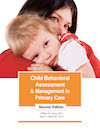Applying Temperament
Working with Temperament in "At risk" Infants

Neonates who need surgery or are hospitalized for illness may have a 'difficult' homecoming
Infants who undergo medical procedures are likely to have temperament issues as well parental stress when they return home. It has been found that such infants are more negative in mood and more difficult to soothe than physically healthy babies. Add to this the worry and disruption of neonatal illness to family routine and there is potential for problems in getting the family back on track.
Dr. Barbara Medoff-Cooper has studied these 'at risk' infants. She finds that it is often the lack of positive interactions or positive feedback from the baby that creates a general level of anxiety for parents, when negative mood is the rule. Not being able to soothe your baby increases the problem. Parents caring for their infants frequently seek help to deal with these stresses. Based on the infant's temperament, realistic expectations can be set.
Dr. Medoff-Cooper teaches parents to find comfort positions that allow the baby to calm herself. These techniques may include specific positioning, rocking or swaddling the infant. Sometimes swinging or vestibular stimulation are effective. As well, decreasing the overall level of stimulation (sight, sound, etc.) may produce a calming effect. And, yes, even giving a pacifier can be helpful. The most important point is that these techniques work differently in different infants. It is the 'goodness of fit' that matters!
One of the primary goals of infancy is to develop a strong bond between baby and caregiver and to nourish the infant through feeding. The early part of infancy is critical to establish a positive interaction. Using information about temperament, infant state, readiness to feed and environmental factors, positive feeding experiences for all can be promoted.












